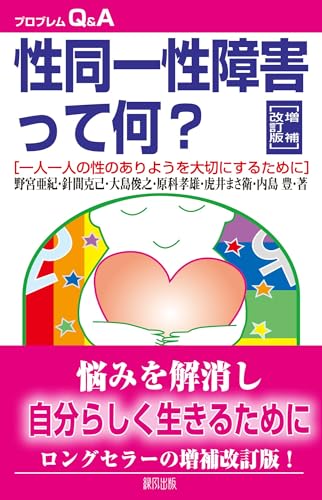9 0 0 0 OA 「性同一性障害」を巡る動きとトランスジェンダーの当事者運動
- 著者
- 野宮 亜紀
- 出版者
- JAPAN SOCIETY FOR GENDER STUDIES
- 雑誌
- 日本ジェンダー研究 (ISSN:18841619)
- 巻号頁・発行日
- vol.2004, no.7, pp.75-91, 2004-09-01 (Released:2010-08-04)
- 参考文献数
- 42
In the middle of the 1990's, Japanese transgenders started self-help activities to improve their lives and social status. Trans-Net Japan (TNJ) is a self-driven group founded by Honoho Morino. The activities of TNJ vary greatly and include; providing a place for transgenders to study and communicate, publishing documents, holding symposiums for the public, and responding to the media to enhance public awareness of their issues. There have always been problems with running this group because all the programs are staffed by unpaid volunteers due to the lack of public funding for the transgender groups. This lack of funding makes certain programs and activities, such as peer counseling, more difficult to maintain. However, TNJ has held more than one hundred events as of January 2004.During the past ten years, TNJ, other groups and professionals have actively worked together to improve the social situation surrounding transgenders This collaboration has lead to major changes: the Japanese Association for Psychiatry and Neurology established guidelines for the diagnosis and the treatment of GID (1997), the first publicly announced SRS was conducted with recognized justification by the medical ethics committee (1998), a transgender was elected to the Setagaya Ward Congress (2003) and a law allowing transgenders to change the gender on their family registration (equivalent to birth certificate) passed the diet (2003).In the processes of changing the social system, the public view towards transgenders has shifted from“som ething about sex cultures” to “something about medical and human rights issues.” The concept of the mental disorder, GID, was spread in our society as a term to describe transgender individuals. This situation generated a debate in the transgender community about whether the purpose of transgender activities is to acquire the welfare as handicapped people depending on the concept of GID or to deconstruct social norms based on the male/female gender dichotomy.One answer is that the primary purpose of the self-driven activity is empowerment of the community. TNJ provides opportunities for the empowerment in their activities; the participants share a common problem, learn from each other and find strength in themselves. If all transgenders make the transition from passivity to self-reliance, they can confront the psychological and social issues in order to change their own lives and break discrimination based on gender issues.
7 0 0 0 パートナーシップ・生活と制度 : 結婚、事実婚、同性婚
- 著者
- 杉浦郁子 野宮亜紀 大江千束編著
- 出版者
- 緑風出版
- 巻号頁・発行日
- 2007
- 著者
- 野宮 亜紀
- 出版者
- インパクト出版会
- 雑誌
- インパクション (ISSN:02872897)
- 巻号頁・発行日
- no.117, pp.70-73, 2000-01
- 著者
- 野宮亜紀 [ほか] 著
- 出版者
- 緑風出版
- 巻号頁・発行日
- 2011

